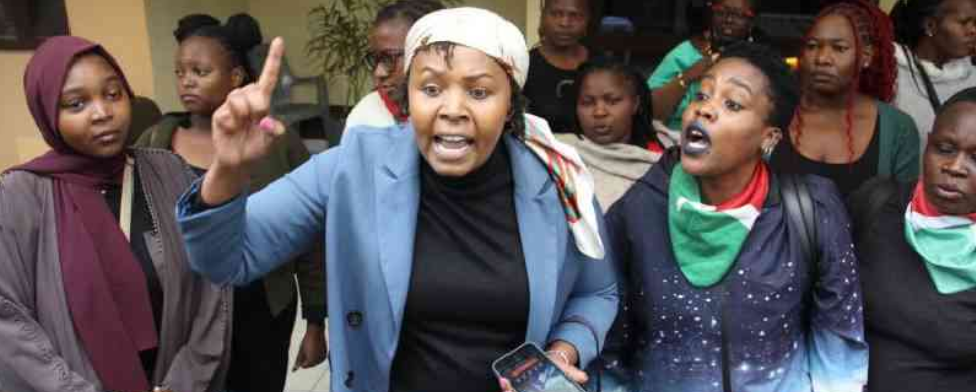Lets celebrate the courage and professionalism of journalists
- Irungu Houghton

- May 6, 2019
- 3 min read

Yesterday was International Press Day. The power of a politically and financially independent media was celebrated in over 190 countries. The context for a vibrant media and the search for the truth has got more complicated with accelerated information digitisation and levels of disinformation and toxicity we have not seen in decades.
Two recent experiences inform my love of press freedoms, data and open societies. A few years back, I politely listened to a Tunisian former Tourism and Information Minister describe how well the economy was growing prior to the revolution. I asked him, if the GDP was doing so well, why did the revolution happen? He responded sarcastically, “perhaps the street protesters did not bother to read our statistical reports?”
The second memory is of a few weeks back, where I found myself trying to stop fifty elected Members of County Assemblies as they furiously shouted down a journalist off a podium. He had criticised Homa Bay County Assembly members for viciously beating journalist James Omoro for a story he was working on.
The right to information and free expression is non-negotiable for democratic and open societies. Our constitutionalists knew this when they enshrined Article 34 to guarantee media freedom and editorial independence from state, political and commercial interference and control. The Article also requires the press to be impartial and fair in its reporting. The Access to Information Act (2016) now empowers all journalists and citizens to access all public information held by state officers.
Democratic and open societies cannot survive on laws alone. Without curiosity, a willingness to interrogate data and tolerance for different opinions, such laws are still-born. Most of us believe our suspicions and superstitions are sufficient. We don’t need to watch the news, talk to people outside our social media groups or interrogate any of the issues that matter to us any further. We simply know. In our ignorance or righteousness, Article 34 dies a little also.
The Economy Survey 2019 was my Labour Day read this week. Fewer citizens are reading hard copy newspapers, and 2.9 million have turned to e-versions for their source of news and this column. There are twice as many people using 4G browsing speeds than 2017.
Worryingly, crime is up by 13 per cent. Use of dangerous drugs is spiking and defilement now represents 75 per cent of all morality-based crimes. Despite these trends, the percentage of people reporting criminals to the police increased by only 5.1 per cent. Fewer people also reported corruption to the EACC last year. The Survey findings offer incoming EACC Chief Executive Twalib Mbarak and Police Inspector General Hilary Mutyambai a clear opportunity to rebuild public confidence and cooperation.
There is also some good news. Courts are gradually abandoning the inhumane and barbaric option of death sentencing. In 2018, the number dropped to 385 from 811 in 2017. Murder and other homicide cases are down by 8 per cent and 21 per cent respectively. Issuance of passports is up 76 per cent and the Judiciary concluded 21.8 per cent more cases in 2018 than in the previous year. An intriguing statistic that deserves a national conversation is the one that twice as many women were convicted in 2018 than 2017.
Unlike Tanzania, whose recent Official Statistics Act that has criminalised un-official statistics, we can openly generate our own statistics, interpret and debate these statistics. However, Kenya has been back-sliding on the World Press Freedom Index for the last three years. Restrictive Security Laws Act amendments, the excessive Computer and Cyber-crimes Act, broadcasting directives, bans and shut-downs and attacks on journalists drive this.
It is not just the national executive. In September 2018, the Parliamentary Broadcasting Unit suspended live coverage of proceedings amid claims of vote rigging on the controversial fuel tax. It is actions like these that cost us 4 places and earned us the disappointing rank 100th in the world in 2019. Ethiopia, by contrast, has jumped 40 places ahead this year.
We must celebrate the courage and professionalism of journalists like Barack Oduor, Sophie Wanuna, Isaiah Gwengi, Stephen Letoo, James Omoro, Linus Kaikai, Larry Madowo, Ken Mijungu, Gado, Dennis Galava and others who were attacked for bringing news to us. It often takes more mental effort to tell an inconvenient truth than to remain silent and safe. This is the simple line between a society that believes its own lies and a society that openly debates itself in the pursuit of the truth.
First published Saturday Standard, May 4, 2019. Kindly reproduced here with permission from the Standard Group




Comments